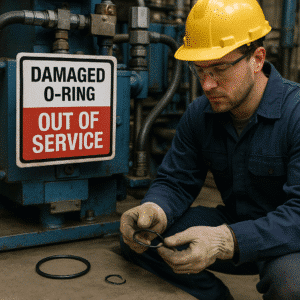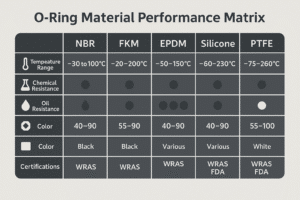A leaking oil seal means downtime, contamination, and costly repairs. I’ve learned precision-made seals are key for hydraulic system reliability.
High-quality hydraulic oil seals prevent leaks, reduce wear, and ensure system efficiency by maintaining lubricant integrity and withstanding high pressures.
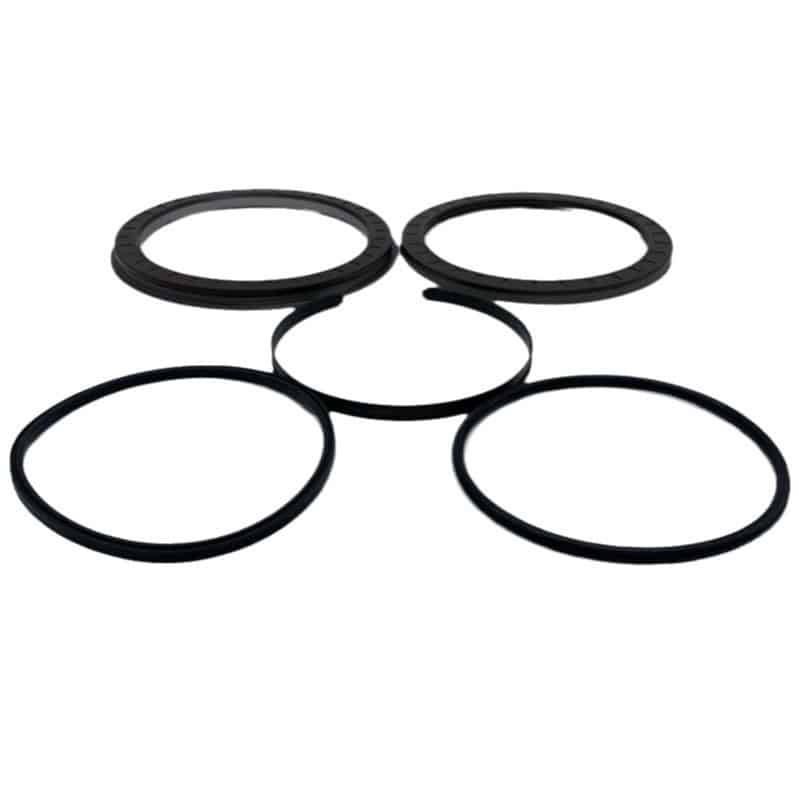
Wondering why precision matters so much for oil seals? Keep reading to see how it directly impacts your hydraulic system’s performance and longevity.
What happens if you use a low-quality hydraulic oil seal?
Cheap oil seals often fail prematurely, causing leaks, contamination, and system breakdowns.
Precision-engineered oil seals, like the 120x150x15/20.2 hydraulic shaft seal, offer superior fit, durability, and resistance to pressure, ensuring longer service life and reduced maintenance costs.
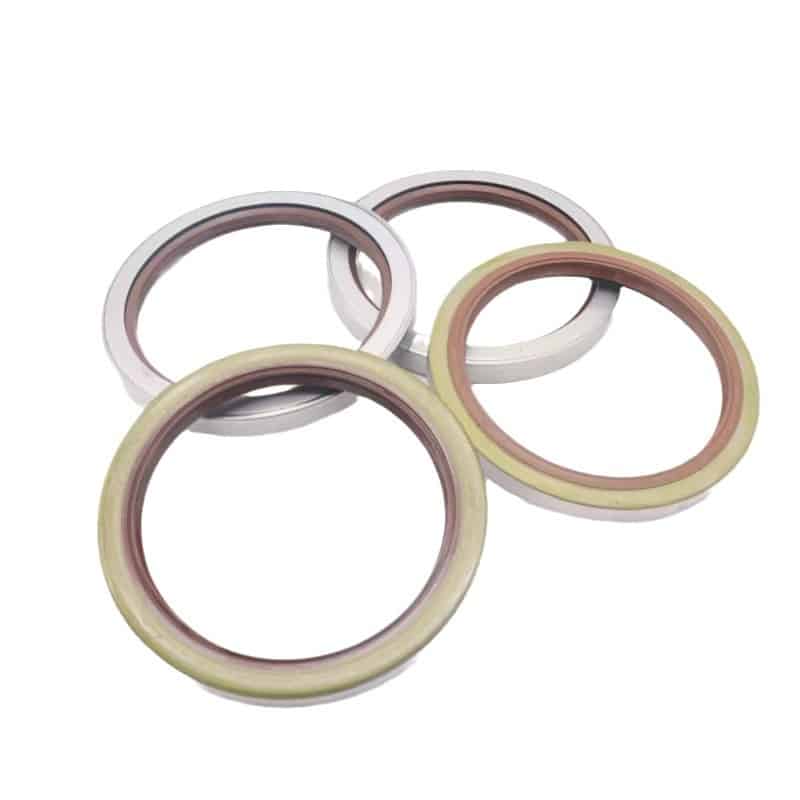
I’ve seen factories cut costs with low-grade seals, only to face expensive equipment failures later. Investing in a quality oil seal prevents these headaches. Our 12015015/20.2 model uses premium materials like NBR for oil resistance, FKM for high-heat, and PTFE for chemical-heavy environments. By selecting the right material, industries can ensure optimal performance even under extreme conditions.
| Material | Properties | Best Use Case |
|---|---|---|
| NBR | Oil-resistant, cost-effective | General hydraulics |
| FKM | High-temperature resistant | Heat-intensive operations |
| PTFE | Low-friction, chemical resistant | Specialized industries |
Which industries benefit most from precision hydraulic oil seals?
Sectors like automotive, manufacturing, and heavy machinery rely on precise sealing to maintain efficiency and prevent downtime.
| Industry | Application |
|---|---|
| Automotive | Power steering, hydraulic brakes |
| Manufacturing | CNC machines, presses |
| Heavy Machinery | Excavators, loaders |
| Aerospace | Precision hydraulic controls |
Using FKM O-Rings for high-temperature sealing in these applications ensures leak-free, long-lasting performance. I always recommend matching seal material to the specific application environment.
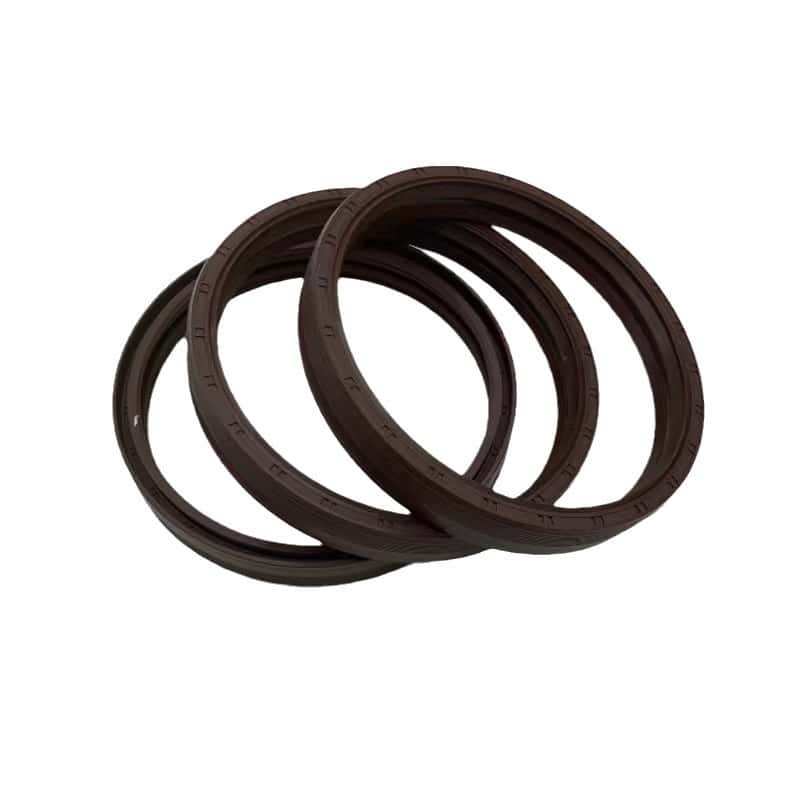
How do you install a 120mm hydraulic oil seal correctly?
Incorrect installation often leads to premature seal failure.
Follow these steps:
- Clean shaft and housing thoroughly.
- Lubricate the sealing lip.
- Press seal evenly without distortion.
- Check for perfect alignment.
- Test for leaks before full operation.
For best results, use proper tools and refer to our Oil Seal Installation Guide. Routine inspections and using compatible lubricants further extend seal lifespan.
How to select the right hydraulic oil seal size and specification?
Choosing the right oil seal depends on shaft diameter, pressure, and application.
| Size (mm) | Shaft Diameter | Application |
|---|---|---|
| 120x150x15/20.2 | 120mm | Hydraulic cylinders |
| 100x130x12 | 100mm | Automotive hydraulic systems |
| 140x170x18 | 140mm | Industrial machinery |
For quick replacements, I rely on O-Ring Assortment Kits. Accurate measurements ensure proper fit and sealing efficiency.
Where can you buy high-quality hydraulic oil seals with fast delivery?
Reliable suppliers like Hengoseal offer:
- Custom size & material options
- Competitive factory pricing
- Global shipping with OEM support
Order your 120x150x15/20.2 precision hydraulic shaft seals or contact us for tailored sealing solutions.
📩 Email:[email protected]
📞 WhatsApp:+86 17622979498
Conclusion
Precision-engineered oil seals are essential for hydraulic system reliability, reducing downtime and ensuring long-term efficiency.
Get Your Custom Hydraulic Oil Seals from Hengoseal
📩 Email:[email protected]
📞 WhatsApp:+86 17622979498
Related topic
Oil Seals vs. Dust Seals – Which One Do You Need?
How to Extend the Lifespan of Rotary Shaft Seals
How HENGOSEAL Helped Reduce Oil Leaks by 30%

